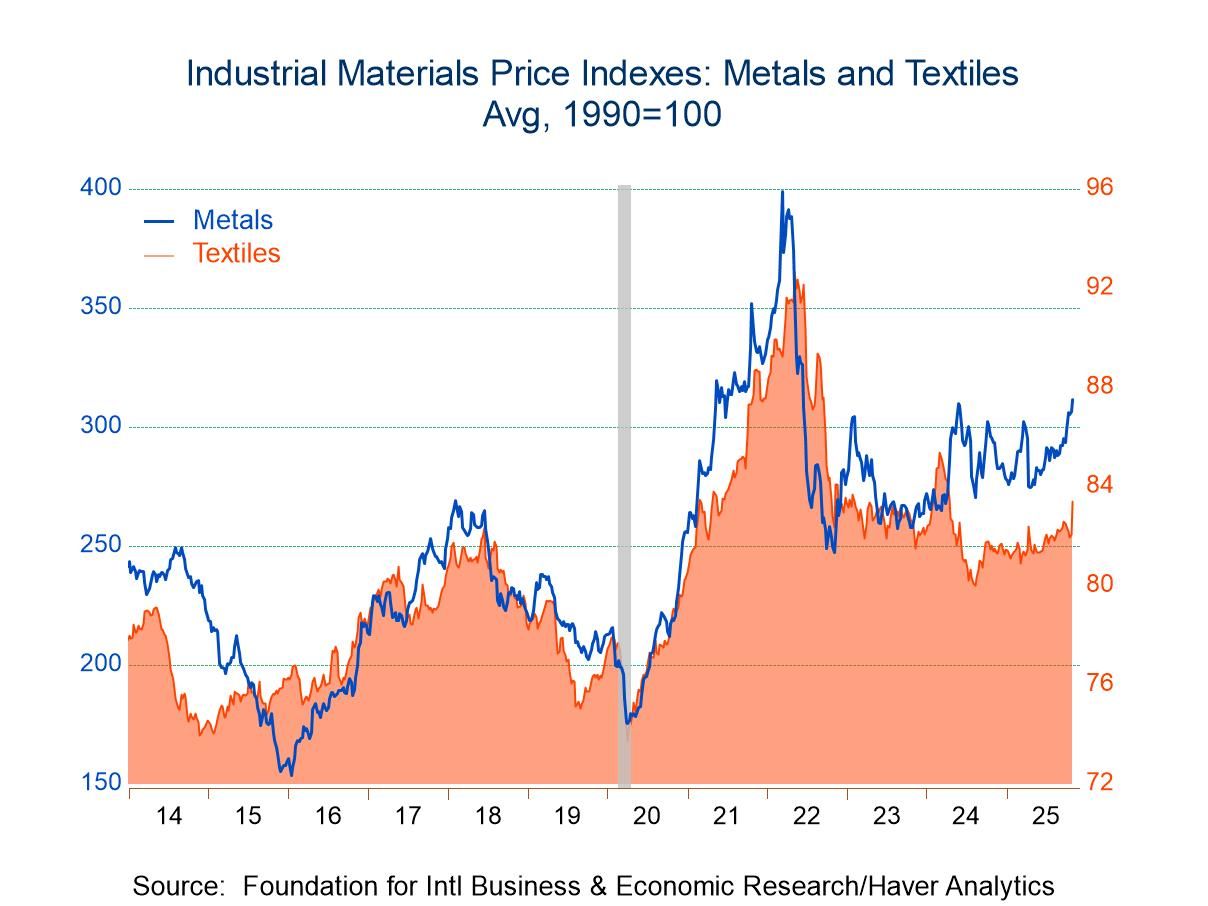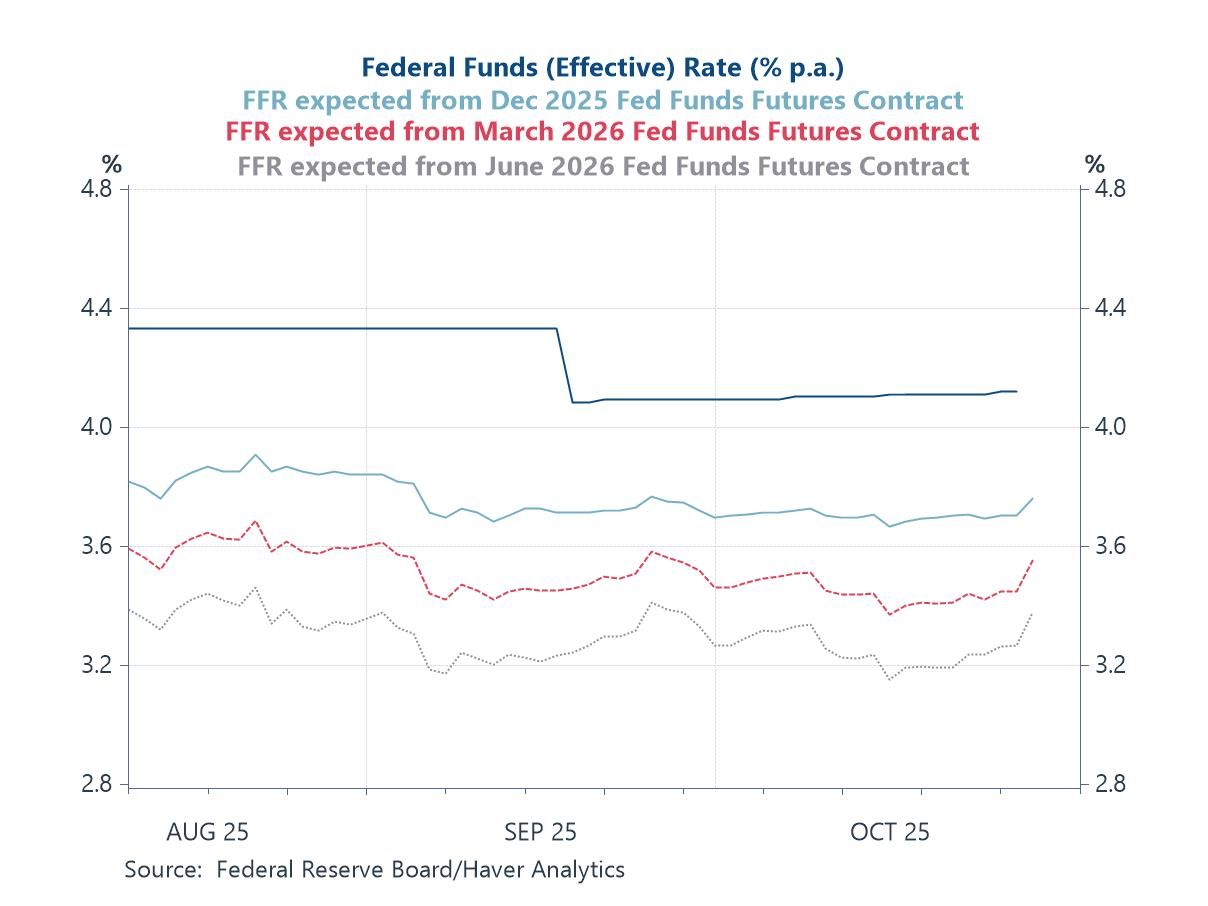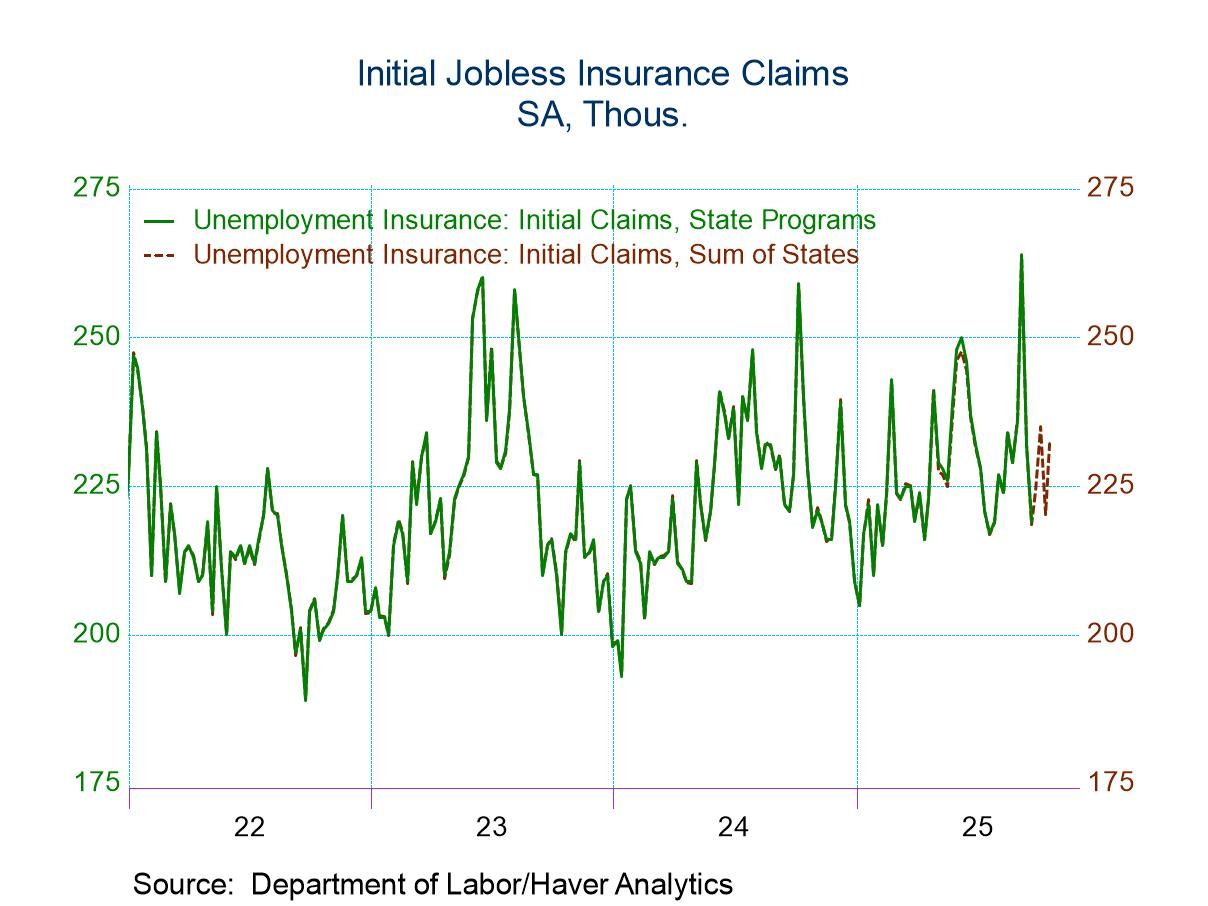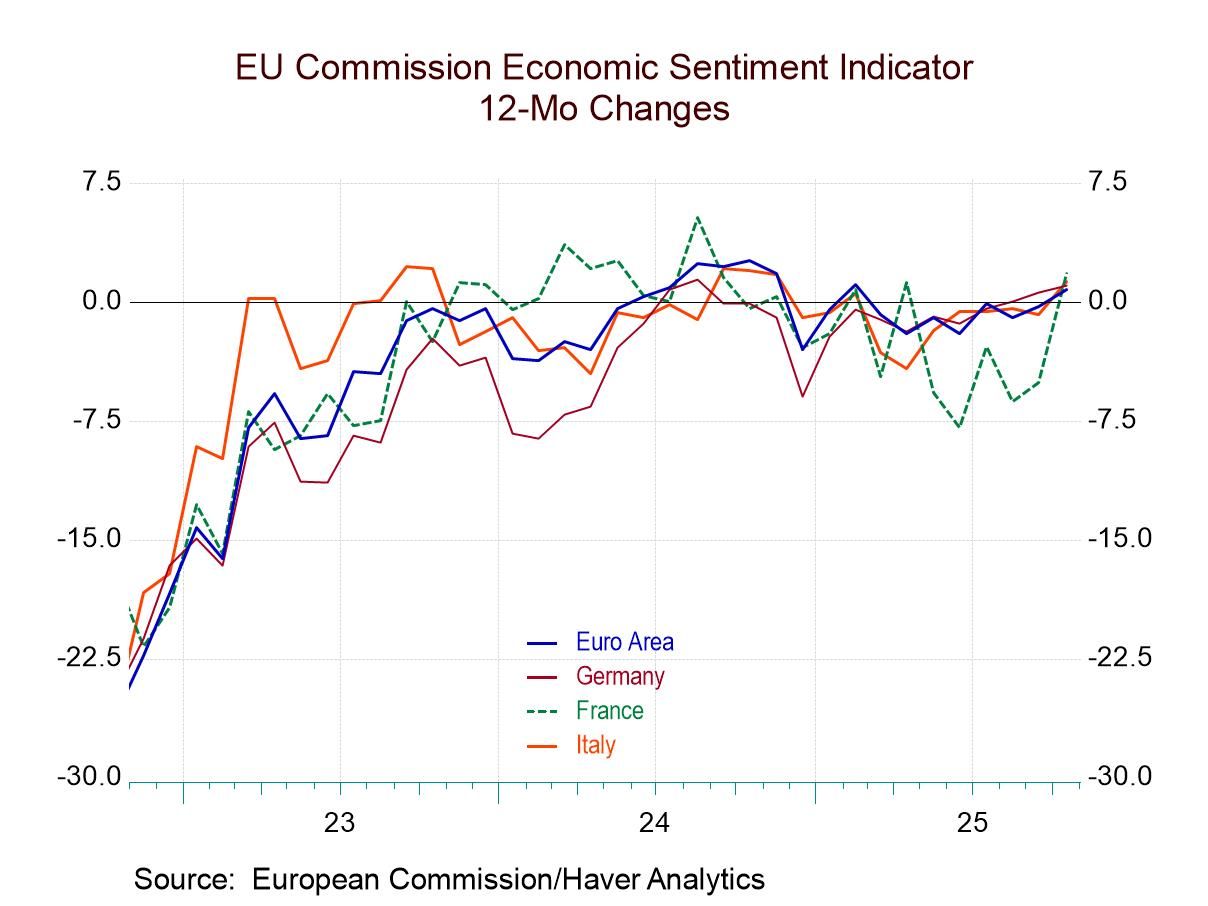 Global| Jul 24 2007
Global| Jul 24 2007Weekly Chain Store Sales Tick Down as Gas Prices Fell
by:Tom Moeller
|in:Economy in Brief
Summary
The International Council of Shopping Centers (ICSC)-UBS survey indicated that chain store sales ticked 0.2% lower last week and reversed most of the 0.3% rise during the prior week. The weak showing of sales recently left the average [...]
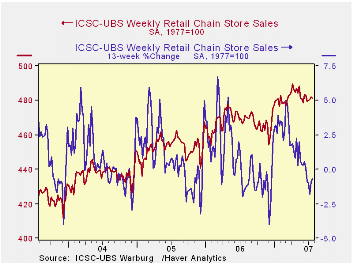
The ICSC-UBS retail chain-store sales index is constructed using the same-store sales (stores open for one year) reported by 78 stores of seven retailers: Dayton Hudson, Federated, Kmart, May, J.C. Penney, Sears and Wal-Mart. 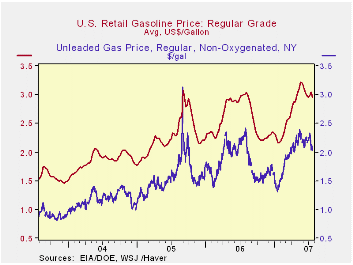
The leading indicator of chain store sales from ICSC-UBS fell 0.5% (+0.5% y/y) after a 0.3% rise during the prior week. Nevertheless, the July average thus far is up 0.8% from June which fell 0.8% from May.
The meager rise in chain store sales this month came as gasoline prices for regular, on average, fell 3.0% to $2.958 per gallon (-1.5% y/y) last week. That followed a 2.3% advance during the prior week.
As a result, the average gas price so far in July is 2.3% lower than in June when prices fell 2.9% from May.
The market price for regular gasoline in N.Y. harbor fell yesterday to $2.0316 (-11.25% y/y), suggesting further declines in the retail price for gas.Macroeconomic Implications of Changes in the Term Premium from the Federal Reserve Bank of St. Louis is available here.
| ICSC-UBS (SA, 1977=100) | 07/21 /07 | 07/14/06 | Y/Y | 2006 |
|---|---|---|---|---|
| Total Weekly Chain Store Sales | 481.3 | 482.1 | 3.0% | 3.3% |
Tom Moeller
AuthorMore in Author Profile »Prior to joining Haver Analytics in 2000, Mr. Moeller worked as the Economist at Chancellor Capital Management from 1985 to 1999. There, he developed comprehensive economic forecasts and interpreted economic data for equity and fixed income portfolio managers. Also at Chancellor, Mr. Moeller worked as an equity analyst and was responsible for researching and rating companies in the economically sensitive automobile and housing industries for investment in Chancellor’s equity portfolio. Prior to joining Chancellor, Mr. Moeller was an Economist at Citibank from 1979 to 1984. He also analyzed pricing behavior in the metals industry for the Council on Wage and Price Stability in Washington, D.C. In 1999, Mr. Moeller received the award for most accurate forecast from the Forecasters' Club of New York. From 1990 to 1992 he was President of the New York Association for Business Economists. Mr. Moeller earned an M.B.A. in Finance from Fordham University, where he graduated in 1987. He holds a Bachelor of Arts in Economics from George Washington University.



